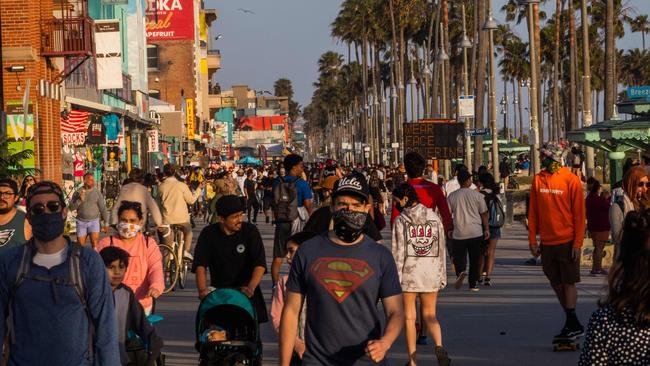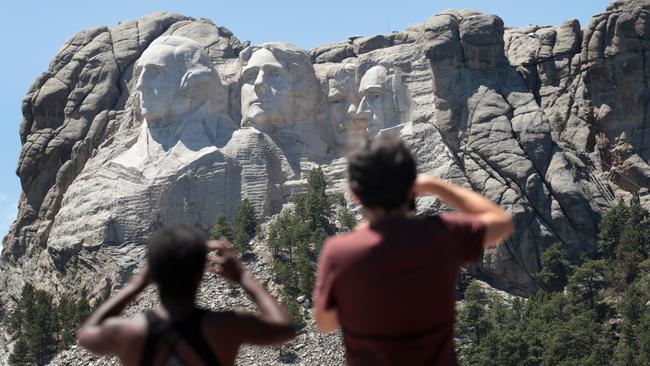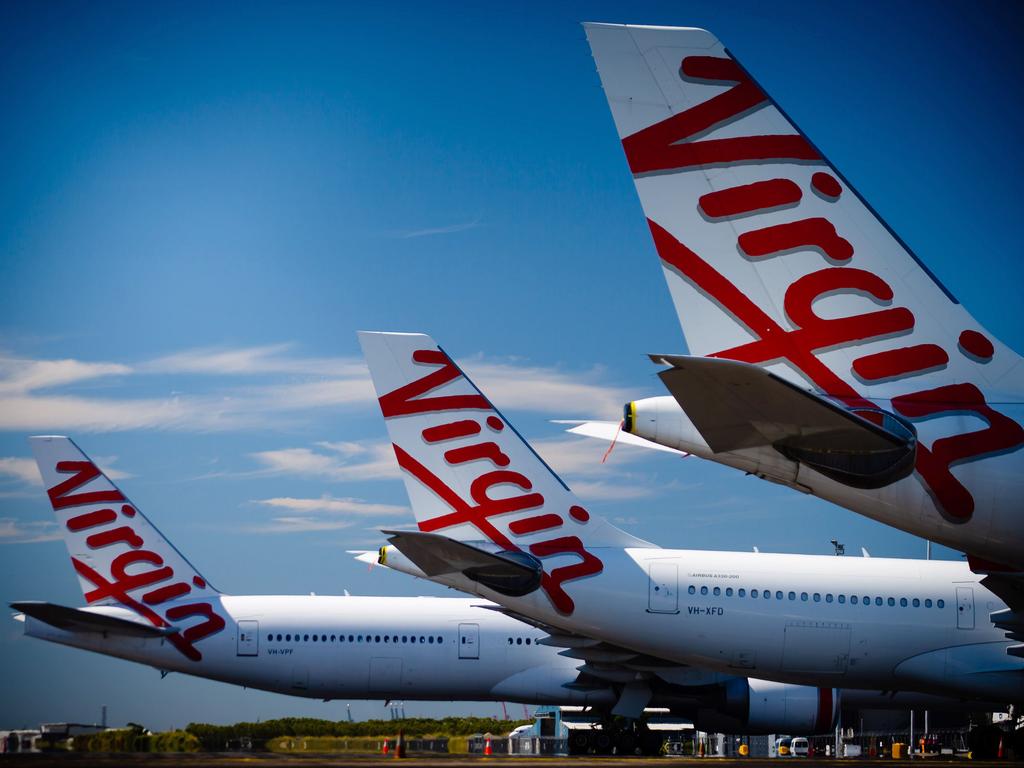
States that had emerged from lockdown in the spring are now responding to a resurgence in Covid-19 cases with a return to incarceration. In Texas, gyms, bars and restaurants that had been open for the past month have just been closed again. In the desert heat of Arizona the governor announced this week that there will be no going back to water parks for at least a month.
In the past week total cases in the US have surged to more than 40,000 a day, the highest number since the virus first hit the country in the late winter, and so a growing number of states are reimposing restrictive measures.
The economic and political ramifications of a renewed lockdown are far-reaching. If the new lockdown is an extended one, the damage to businesses that have managed to limp through the past few months could be terminal. President Trump, besieged by a summer of disease, disorder and depression, and seemingly unable to take his foot out of his mouth on any topic, had been counting, increasingly desperately, on a return to some kind of normality in time for November’s election. That may be elusive.
There is, as you would expect, no shortage of schadenfreude among the lockdown enthusiasts at this latest turn of events. Democrats and the media have seized on the surge in cases in mostly Republican states, that had moved relatively early to reopen their economies, as proof of the party’s ineffable stupidity and malignity.

In fact the panic is, once again, almost certainly overdone. And, once again, the probability of an over-reaction to the spread of the virus risks greater harm to the economy and its ability to supply strong and sustainable healthcare to all. Not only is the recent sharp rise in infections in fact no cause for panic. It may actually be salutary, proof that the disease is less deadly than feared.
While new case numbers in the US have risen from under 20,000 a day in late May to over 40,000, daily deaths have dropped precipitously from a peak of over 2,000 in April to fewer than 500 in the past week. Deaths, of course lag new infections – typically by about two weeks in the data – but there’s no evidence yet of deaths rising.
Three states – Florida, Texas and Arizona, with between them about one sixth of the US population – now account for about half the new cases. In Florida, cases began accelerating around June 10 and are up an average of fivefold since then. But deaths are unchanged. In Texas, cases have quadrupled over the same time but deaths peaked on May 15 and in the past month have been flat at about half the number then.
The reason appears to be that the virus is now spreading rapidly among younger and less vulnerable populations. A much higher proportion of those infected are younger people than was the case in the early stages of the outbreak. The median age of newly-infected Florida cases in the last two weeks has been about 35; down from 55-60 in the early stages of the spread.

It’s true that Texas has reported a troubling increase in numbers of people in hospital with the virus, raising fears that healthcare facilities could be overwhelmed. The total number of people with Covid-19 who have been hospitalised has tripled in Texas over the past month. But it’s not clear how severe many of these cases are. Doctors in Texas have reported a large number of relatively mild cases, requiring one or two-night stays. Furthermore there is evidence that large numbers of people who had put off hospital visits during the earlier peak of the virus have now been admitted to hospital for other reasons and have now tested positive for Covid-19.
We’ll need more evidence before we can say for sure how serious the new surge is but the overall picture continues to suggest that the threat from the virus has been consistently overstated.
The rise in infections of those with mild or no symptoms, combined with a declining death rate, indicates the overall infection fatality rate is much lower than initially feared. On the latest data, it looks as though the rate for Covid-19 is now below 0.5 per cent.

It is also now clear that about half the 125,000 US deaths from the virus have occurred in care homes.
This is a profound indictment of those charged with looking after the most vulnerable, especially in places such as New York, where the state ordered elderly coronavirus patients to be moved from hospitals to care homes, where the disease spread like wildfire. Florida and Texas, as their infection rates rise, have been particularly careful about isolating the elderly in these homes.
Outside care facilities, the overall fatality rate looks closer to 0.2 per cent. This is a number at the high end of a severe flu season.
The new data we are seeing in the US suggest that, far from justifying the most extreme lockdown measures, with all the damage to the economy they do, the spread of the virus is much less of a threat to health and life than was widely argued.
With proper, targeted protection of the most vulnerable it would probably not have been necessary to shut down entire economies. We could have saved lives and livelihoods.
The Times








For those with a taste for irony, this July 4 weekend will be one to remember. As Britons are finally liberated from months of lockdown tyranny, declaring their independence from imposed confinement with a pint in a pub, here in the former colonies the national holiday will be commemorated with renewed restrictions, tightened controls on movement and stern demands from our rulers to stay home.